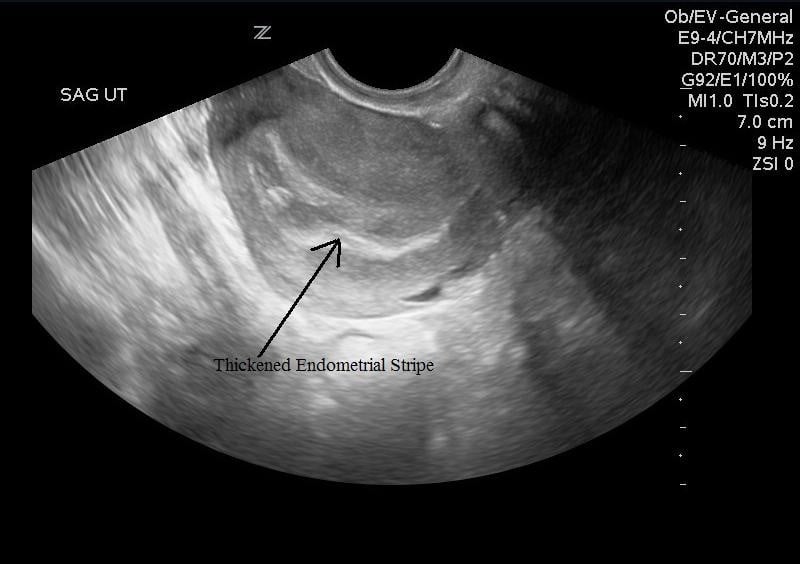
Ultrasound in Early Pregnancy: A Comprehensive Guide
Introduction
Ultrasound, also known as sonography, is a non-invasive imaging technique that uses high-frequency sound waves to create images of the inside of the body. In early pregnancy, ultrasound is used to confirm pregnancy, determine the gestational age of the fetus, and assess the overall health of the pregnancy.
Types of Ultrasound
There are two main types of ultrasound used in early pregnancy:
- Transvaginal ultrasound: This type of ultrasound is performed by inserting a small probe into the vagina. It provides the clearest images of the uterus and ovaries, and is typically used in the early stages of pregnancy (before 10 weeks).
- Transabdominal ultrasound: This type of ultrasound is performed by placing a probe on the abdomen. It is less invasive than transvaginal ultrasound, but may not provide as clear images. It is typically used later in pregnancy (after 10 weeks).
When to Get an Ultrasound
The timing of an ultrasound in early pregnancy depends on the reason for the ultrasound. Some common reasons for getting an ultrasound in early pregnancy include:
- Confirming pregnancy: An ultrasound can confirm pregnancy by detecting the presence of a gestational sac or fetal heartbeat.
- Determining gestational age: An ultrasound can measure the size of the fetus and determine its gestational age. This information is important for planning prenatal care and delivery.
- Assessing fetal health: An ultrasound can assess the fetal heart rate, growth, and development. It can also detect any abnormalities or complications.
- Monitoring multiple pregnancies: An ultrasound can monitor the growth and development of multiple fetuses in a multiple pregnancy.
- Evaluating pelvic pain or bleeding: An ultrasound can help diagnose the cause of pelvic pain or bleeding in early pregnancy.
Procedure
An ultrasound in early pregnancy is a relatively quick and painless procedure. Here’s what to expect:
- Transvaginal ultrasound: You will lie on your back with your legs in stirrups. The doctor or technician will insert a small probe into your vagina. The probe will emit sound waves that will create images of your uterus and ovaries.
- Transabdominal ultrasound: You will lie on your back with your abdomen exposed. The doctor or technician will apply a gel to your abdomen and place a probe on your skin. The probe will emit sound waves that will create images of your uterus and fetus.
Results
The results of an ultrasound in early pregnancy will typically include:
- Confirmation of pregnancy: The presence of a gestational sac or fetal heartbeat confirms pregnancy.
- Gestational age: The size of the fetus is measured to determine its gestational age.
- Fetal heart rate: The fetal heart rate is measured to assess the health of the fetus.
- Fetal growth and development: The size and shape of the fetus are assessed to ensure normal growth and development.
- Placental location: The location of the placenta is assessed to ensure it is not blocking the cervix.
- Amniotic fluid: The amount of amniotic fluid is assessed to ensure it is within normal limits.
Benefits of Ultrasound
Ultrasound in early pregnancy offers several benefits, including:
- Non-invasive: Ultrasound does not involve any radiation or invasive procedures.
- Safe: Ultrasound is considered safe for both the mother and the fetus.
- Accurate: Ultrasound provides accurate images of the uterus and fetus.
- Early detection: Ultrasound can detect pregnancy and fetal abnormalities early on.
- Peace of mind: Ultrasound can provide peace of mind by confirming pregnancy and assessing the health of the fetus.
Limitations of Ultrasound
While ultrasound is a valuable tool in early pregnancy, it does have some limitations:
- Operator-dependent: The quality of the ultrasound images depends on the skill of the person performing the ultrasound.
- Not diagnostic: Ultrasound cannot diagnose all fetal abnormalities.
- May not detect early pregnancy: Ultrasound may not be able to detect pregnancy in the very early stages.
- Can cause anxiety: If an ultrasound detects an abnormality, it can cause anxiety for the parents.
Conclusion
Ultrasound is a valuable tool in early pregnancy that can provide important information about the health of the pregnancy and the fetus. It is a safe and non-invasive procedure that can help confirm pregnancy, determine gestational age, assess fetal health, and detect abnormalities. While ultrasound has some limitations, it is an essential part of prenatal care and can provide peace of mind for expectant parents.